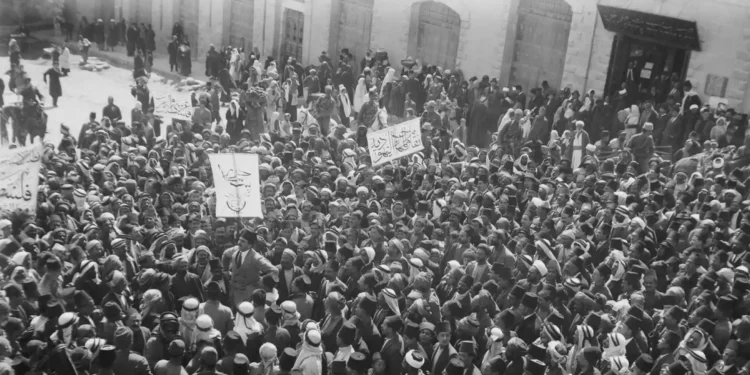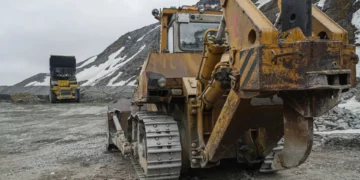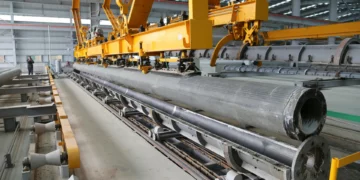Palestinians refer to the mass expulsion as ‘Nakba’, Arabic for ‘catastrophe’
Palestinians on May 15th this year will mark the 76th anniversary of Nakba, the mass expulsion from what now is called Israel, an event that stays at the center of their public battle. But currently, the Nakba experience fails to add up to the disaster currently unraveling in Gaza.
Palestinians refer to the mass expulsion as ‘Nakba’, Arabic for disaster. Exactly 700,000 Palestinians- a greater part of the pre-war populace-escaped or were driven from their homes previously and during the 1948 Arab-Israeli war that followed the establishment of Israel.
After the conflict, Israel would not permit them to return since it would have brought about a Palestinian majority inside its nation. All things considered, they turned into a long-lasting refugee community that currently numbers nearly 6 million people, with most living in ghetto-like metropolitan exile camps in Lebanon, Syria, Jordan, and the Israeli-occupied West Bank.
In Gaza, the evacuees and their relatives make up around 3/4 of the populace.
Israel’s dismissal of what Palestinians say is their right to return has been a central complaint in the contention and was quite possibly one of the thorniest issues in peace talks that last collapsed a long time back. The refugee camps have forever been the primary strongholds of Palestinian militancy.
Presently, numerous Palestinians fear a repeat of their painful history on a much more disastrous scale.
The whole way across Gaza, Palestinians as of late have been stacking up vehicles and donkey trucks or setting out by walking to currently stuffed tent camps as Israel grows hostile. The pictures from a few rounds of mass evacuations all through the seven-month war are strikingly similar to the photos from 1948.
The conflict in Gaza, which was set off by Hamas’ Oct. 7 assault into Israel, has killed more than 35,000 Palestinians, as per authorities, making it by a wide margin the deadliest round fighting throughout the entire existence of the contention. The underlying Hamas assault killed about 1,200 Israelis. The conflict has constrained a few 1.7 million Palestinians — around 3/4 of the region’s populace — to escape their homes, frequently on numerous occasions.
That is above and beyond two times the number that escaped previously and during the 1948 conflict.
Israel has sealed its border. Egypt has just permitted a few Palestinians to leave, to a limited extent since it fears a mass influx of Palestinians could create another drawn-out exile emergency.
The international community is emphatically against any mass ejection of Palestinians from Gaza — a thought embraced by far-right members of the Israeli government, who allude to it as deliberate emigration.
Israel has long required the refugees of 1948 to be absorbed into host countries, saying that calls for their return are ridiculous and would imperil its presence as a Jewish-majority state. It focuses on the huge number of Jews who came to Israel from Arab nations during the disturbance following its foundation, however, not many of them need to return.
Regardless of whether Palestinians are not removed from Gaza altogether, many are apprehensive that they will always be unable to get back to their homes or that the obliteration unleashed on the domain will make it difficult to reside there.
A new U.N. estimate said it would take until 2040 to reconstruct crushed homes. The Jewish local armies in the 1948 conflict with the armed forces of adjoining Arab countries were principally equipped with lighter weapons like rifles, machine guns, and mortars. Many Palestinian towns were destroyed after the conflict, while Israelis moved into Palestinian homes in Jerusalem, Jaffa, and different urban communities.
In Gaza, Israel has released one of the deadliest and most horrendous military missions in late history, on occasion dropping 2,000-pound (900-kilogram) bombs on residential areas.
The World Bank assesses that $18.5 billion in harm has happened in Gaza, generally comparable to the GDP of the whole Palestinian domain in 2022. What’s more, that was in January, at the beginning of Israel’s ground activities in Khan Younis and before it went into Rafah.
Yara Asi, a Palestinian professor at the University of Central Florida who has done research on the damage to civilian infrastructure in the conflict, says it’s very hard to envision the sort of assistance from international countries that would be important to modify Gaza.
Indeed, even before the conflict, numerous Palestinians discussed a continuous Nakba, in which Israel slowly compelled them out of Gaza, the West Bank, and East Jerusalem, domains it caught during the 1967 conflict that the Palestinians needed for a future state.
They highlight the destruction of homes and other prejudicial arrangements that long originated before the conflict, and which activists say add up to politically sanctioned racial segregation, the claims that Israel denies.
Asi and others dread that if another certified Nakba happens, it will be in the form of a gradual departure. “It won’t be called forcible displacement in some cases. It will be called emigration, it will be called something else,” Asi said.

















